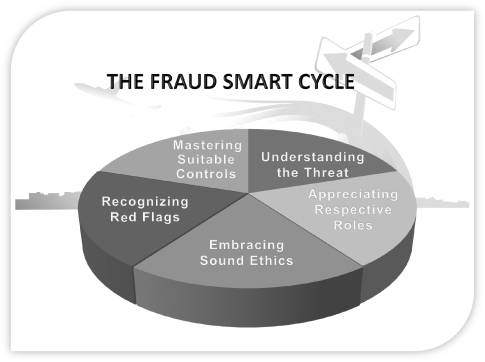1
What Do We Mean by Fraud?
Fraud can involve mundane activities such as employees regularly taking home small items of office equipment, right through to complex schemes established by executive directors for manipulating the financial statements to pump up the share price of their failing company. In this book we are mainly concerned with employee fraud, which affects small businesses, larger companies, public-sector organizations and the many types of not-for-profit entities that exist in developed and developing countries across the world. Our goal is to help raise awareness among non-specialists to help get everyone involved in the fight against fraud. Organizations that succeed in fighting fraud will benefit, while those that do not may well see their reputations suffer as they become targets of their own employees and even of outsiders, who launch attacks either alone or by colluding with these employees.
One argument suggests that fraud against businesses and government agencies is growing at an alarming rate and we now need to take a firm stance or suffer the consequences. This book is based around the Fraud Smart cycle, which covers five key aspects of helping non-specialists get to grips with fraud at work, as set out in Figure 1.1.
Figure 1.1 The Fraud Smart cycle.

This chapter sits within the first part of the Fraud Smart cycle, Understanding the Threat, and provides ...

